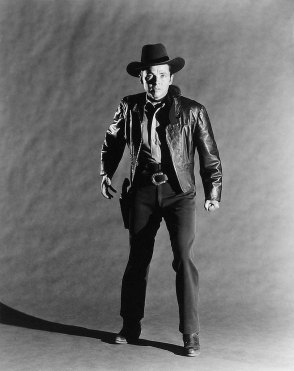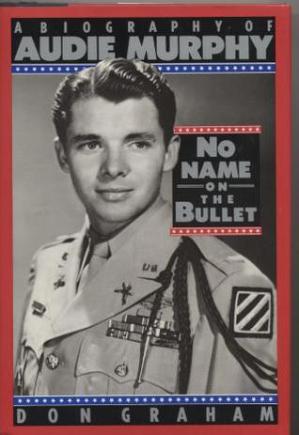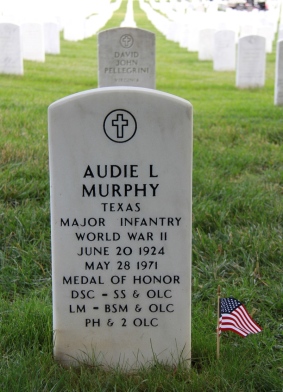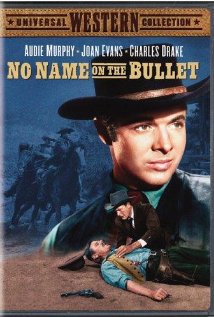I’ve known who Audie Murphy was since I was old enough to point at a television screen. Westerns were always popular in our house and while the Duke was the iconic cowboy, Audie Murphy westerns played regularly and his baby faced smooth delivery hooked me as a kid. But when the chips were down he was lightning fast on the draw. What more could a kid running around the house with a cap gun ask for?
Because of my parents I have known since I was young that Audie was the acclaimed hero of WW2. He had been awarded the Medal of Honor from his country. While I have seen his biographical film To Hell and Back I never learned much of Audie’s film career as he rarely turns up in many of the mainstream books on film history. This bio from 1989 that I came across allowed me an insight beyond just the general facts.
The first third of the book is dedicated to his youth and subsequent career in the military. Reading of his military years is somewhat startling. He’s said to have killed over 200 men in battle. While reading the pages it’s hard to accept things as reality because I know Audie as a movie star who killed the likes of Jack Elam or Lee Van Cleef on screen. But the images the book presents are not imaginary. There as real as can be. No Rambo, no Commando here. Just a young man with a rifle on the battlefield.
After returning home and hailed a hero Audie wound up in Hollywood at James Cagney’s urging. It wouldn’t be too long before Universal signed up the handsome young man. Westerns were in his future and have become what Audie’s name is synonymous with. Most of the films were “B’s” but generally fun. John Huston lifted Audie out of the “B” category for a couple of films, The Red Badge of Courage and The Unforgiven. The book goes into plenty of detail on Audie’s film career and shares comments from those who worked with him to please the film studies side of my interest. Sadly by the mid sixties his film career was fizzling out.
I also had no idea that Audie turned to writing a few country music songs including one recorded by the great Charley Pride!
As his final years approached he slid into gambling addiction in what seems like a never ending attempt to find thrills. He was quoted throughout the book that after the war nothing seemed to be all that interesting or exciting. He was also involved at arms length in the life of Jimmy Hoffa. Que the conspiracy theorists as it was during this time that the hand of death finally caught up with him.
Audie Murphy died in a plane crash in 1971 at the age of 46. Films we see at an impressionable age have a way of staying with us and for me the classic Murphy image is as the Utica Kid opposite James Stewart in the 1957 western Night Passage. He was often clad in black leather and ready to strike. While visiting Arlington cemetery about 6 years ago Audie’s was the one grave I purposely stopped at.
The book stresses the problems Murphy went through after his return from the fighting. I assume many young men experienced similar issues at a time when little was known about the problems that would plague a large number of the returning vets. His nightmares plagued him for years. His fixation on firearms, carrying one and even going so far as to sleep with a handgun under his pillow is hard for me to understand. He was quick tempered yet loyal to those in his inner circle of friends.
It’s also commendable to know that countless times he refused to cash in on his heroics and other than a couple times stayed away from war films. He felt the true heroes were left behind on the battle fields. Despite the fact that Audie was a Hollywood success the sad part in reading this is the innocence lost that Audie and countless others experienced from WW2.
The title of this book was a 1959 western starring Murphy alongside Charles Drake and Joan Evans from director Jack Arnold. Worth a look if you find the time.




I haven’t read the book but I have learned a number of the facts you mention through other means over the years.
Those war decorations are impressive but the psychological scars the earning of them obviously left on Murphy is a sobering thought.
It’s not just the men he killed but the amount of friends who didn’t come home is horrific. Sobering a good fit.
Lee Marvin was another who I believe was quite powerfully affected by his wartime experiences.
Yes, Lee was another returning vet. Wounded in action.
This is my favorite book a out Audie. I would recommend it to anyone that wants to know the truth about him.
Great book and so vivid in it’s depiction of his war years. Thanks for dropping in and leaving a message. Hope you enjoy his movies as much as I have over the years as well.
Reblogged this on Audie Murphy Appreciation.